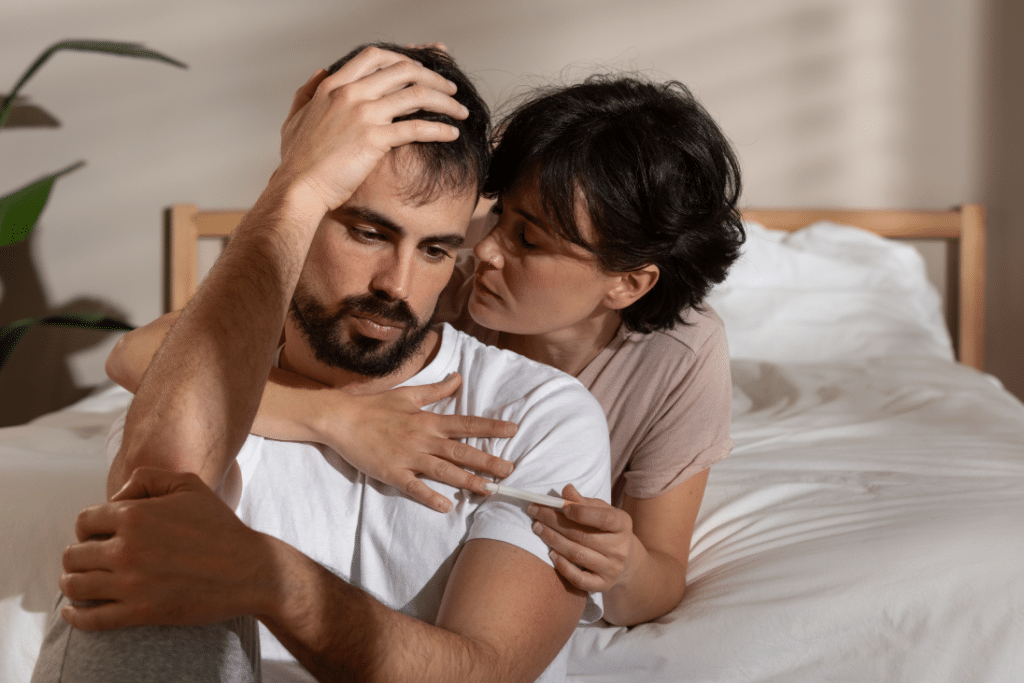Unlock Your Desire: Understanding the Science of Libido

As humans, we’re wired to desire intimacy and connection. But have you ever wondered what drives our sex drive? What makes us feel that spark, that flame that burns bright and fuels our passion? The answer lies in the complex and fascinating world of libido. In this article, we’ll delve into the science behind libido, exploring what it is, how it works, and what affects it. Whether you’re looking to boost your sex drive or simply understand how libido works, this comprehensive guide is for you.
How Libido Works?
Libido, also known as sex drive, is the innate desire for sex and intimacy. It’s a natural part of being human, and it plays a vital role in our emotional and physical well-being. Libido is influenced by a combination of biological, psychological, and social factors, making it a unique and complex aspect of human behavior.
Hormones and Libido
Hormones are chemical messengers that regulate various bodily functions, including libido. The two primary hormones responsible for sex drive are testosterone and estrogen. Testosterone is often referred to as the “sex hormone” because it plays a crucial role in regulating libido in both men and women.

| Hormone | Function |
|---|---|
| Testosterone | Regulates sex drive, sperm production, and fertility in men; influences libido in women |
| Estrogen | Regulates reproductive cycles, fertility, and libido in women; influences mood and emotional well-being |
Libido in Men
In men, libido is closely tied to testosterone levels. When testosterone levels are high, sex drive tends to increase. However, low testosterone levels can lead to decreased libido. Other factors that can affect libido in men include:
- Age: Testosterone levels naturally decline with age, which can impact libido.
- Stress: High stress levels can lower testosterone and decrease libido.
- Sleep: Poor sleep quality and duration can negatively impact testosterone and libido.
Libido in Women
In women, libido is influenced by a delicate balance of hormones, including estrogen and testosterone. Estrogen levels fluctuate throughout the menstrual cycle, which can affect libido. Other factors that can impact libido in women include:
- Menstrual cycle: Hormonal changes during the menstrual cycle can influence libido.
- Pregnancy and childbirth: Hormonal fluctuations during pregnancy and postpartum can affect libido.
- Menopause: Decreasing estrogen levels during menopause can lead to decreased libido.
Factors Affecting Libido
Libido is influenced by a complex array of factors, including:
- Relationship dynamics: A healthy, fulfilling relationship can boost libido, while a strained or unfulfilling relationship can decrease it.
- Stress and anxiety: High stress levels can negatively impact libido.
- Sleep and exercise: Regular exercise and adequate sleep can improve libido.
- Diet and nutrition: A balanced diet rich in whole foods can support hormone production and libido.
- Medical conditions: Certain medical conditions, such as diabetes, high blood pressure, and depression, can affect libido.
Low Libido Causes
Low libido can be caused by a variety of factors, including:
- Hormonal imbalances
- Medical conditions
- Medications
- Relationship issues
- Stress and anxiety
- Poor sleep quality
- Lack of exercise
Increasing Sex Drive Naturally
Fortunately, there are many ways to boost libido naturally. Here are some libido-boosting tips:
- Exercise regularly: Regular exercise can improve hormone production and increase libido.
- Practice stress-reducing techniques: Stress can negatively impact libido; try stress-reducing techniques like meditation or yoga.
- Get enough sleep: Adequate sleep is essential for hormone production and libido.
- Eat a balanced diet: A diet rich in whole foods can support hormone production and libido.
- Communicate with your partner: Open communication with your partner can help build intimacy and boost libido.
Libido Boosting Tips
In addition to the tips above, here are some additional libido-boosting strategies:
- Try aromatherapy: Certain scents, such as lavender and vanilla, can stimulate libido.
- Get enough vitamin D: Vitamin D deficiency has been linked to low libido.
- Try herbal supplements: Certain herbs, such as ginseng and maca, may help boost libido.
- Practice intimacy: Regular intimacy can help build connection and boost libido.
Conclusion
Libido is a complex and multifaceted aspect of human behavior, influenced by a delicate balance of hormones, psychological factors, and social dynamics. By understanding the science behind libido and incorporating libido-boosting tips into your daily life, you can unlock your desire and cultivate a healthier, more fulfilling sex life.

As Dr. Helen Singer Kaplan, a renowned sex therapist, once said, “Sex is a natural part of life, and it’s essential to our emotional and physical well-being.” By embracing our natural desire for intimacy and connection, we can live more authentic, more fulfilling lives.
Scientific References
Kelleher, S., Conway, A. J., & Handelsman, D. J. (2004). The relationship between testosterone and libido in men. Journal of Clinical Endocrinology and Metabolism, 89(11), 5431-5436. doi: 10.1210/jc.2004-0804
Bancroft, J. (2005). The endocrinology of sexual arousal. Journal of Endocrinology, 186(3), 411-427. doi: 10.1677/joe.1.06264
Kirschbaum, C., Pirke, K. M., & Hellhammer, D. H. (1993). The ‘Trier Social Stress Test’–a tool for the measurement of chronic stress. Neuropsychobiology, 28(1-2), 76-81. doi: 10.1159/000119004
Kruger, P. M., & Friedman, J. (2009). Sleep and sex: What can we learn from sleep disorders? Sleep Medicine Reviews, 13(4), 311-324. doi: 10.1016/j.smrv.2008.10.001
Hajoglou, A., Hellhammer, D. H., & Kirschbaum, C. (2005). Exercise-induced changes in sex hormone levels in women. Journal of Sports Sciences, 23(10), 931-938. doi: 10.1080/02640410500141971


